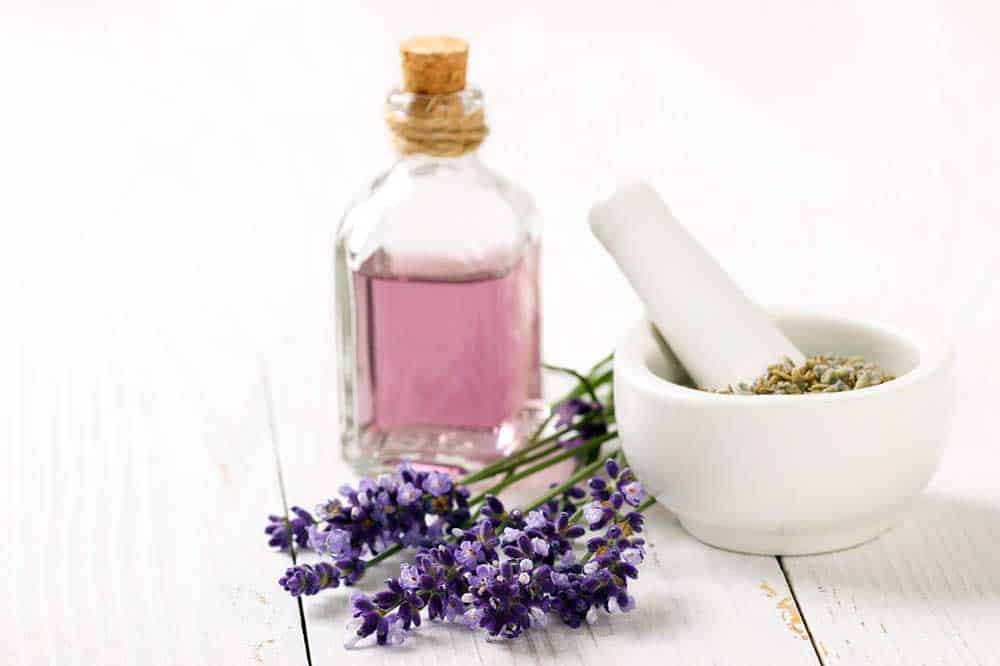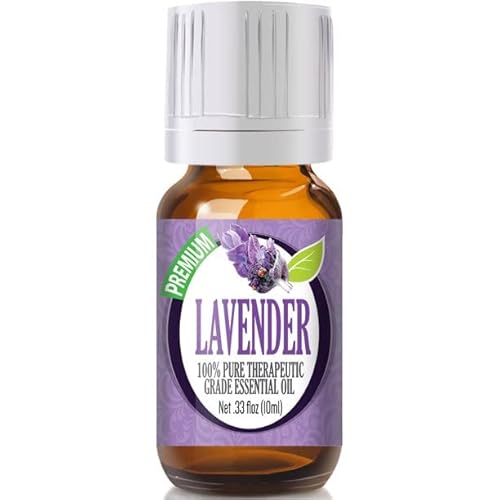Extracted from the various parts of plant life, essential oils are an all-natural substance liquid substance. These “oils” (though misnamed as they are not technically an oily substance) are aromatic, potent, and intrinsically useful for the way that the chemicals affect a person’s body and brain. Pure essential oils are extracted through steam distillation or cold pressed. If a solvent is used to extract an essential oil then it cannot be considered 100% pure because elements of the solvent may remain.
As part of a natural, holistic life, many people are looking to essential oils to solve their health problems—including insomnia. In fact, many essential oils are readily available that promote sedative and relaxation properties in order to help with sleep and rest.
How to Use Essential Oils for Insomnia
Understanding the potency and power of essential oils in order to use them properly. Essential oils are so strong that, for the most part, it only takes just a few drops for them to be effective. Simply smelling an essential oils can cause its chemicals to enter into the bloodstream in just a matter of seconds in order for it to work.
Their strength (and cost!) means that it is not recommended to apply essential oils directly to the body as they could burn the skin or cause other reactions. Instead, they should be diluted with a carrier oil such as Grapeseed Oil or Avocado Oil, and then applied to the skin.
In the case of powerful and effective essential oils, too much of a good thing can be bad. Too much exposure to certain essential oils may cause headaches or other adverse reaction. Be sure to start small at first and then slowly increase the amount if needed.
Options for Using Essential Oils to Promote Sleep
There are several different ways you can use essential oils to effectively reduce insomnia:
Diffuse. Create a relaxing and soothing ambiance in the room by diffusing essential oils into the air. Some essential oils (mentioned below) actually have natural properties that help promote sleep and relaxation! If you don’t already have one, purchase a high quality essential oil diffuser (like this great seller on Amazon). You typically fill it with water then add just a few drops of your essential oil of choice. You’ll be amazed and wonder how you ever slept without one!
Bottoms of the Feet. Did you know that your body absorbs essential oils through the bottoms of the feet better and faster than when applied to any other part of the body? Add a few drops of your favorite soothing essential oil to a carrier oil in your hand. Apply to the bottoms of the feet while gently massaging into the skin. Top it off with a pair of fluffy socks and crawl into bed!
Pillow Spray. Add a few drops of essential oil to a glass spritzer bottle (use dark glass bottles like these available on Amazon) diluted with water. Shake and spray around the room fabric surfaces such as pillows or just into the air. Do avoid spraying on polished surfaces as the oils could create stains. And be sure to dilute because spraying powerful concentrated essential oils directly onto anything surface can stain or ruin it.
Warm Bath. Add a few drops of your favorite essential oils for insomnia to a warm bath before bedtime. Soak your cares and your worries away while preparing your body and your mind for sleep.
Mini Massage. Use a few drops of a relaxing essential oil diluted in a carrier oil to give yourself a mini-massage before bed. Target areas specifically such as your legs, feet, hands, shoulders, and the back of the neck. If you can get the help of your spouse or roommate, this is even better.
Best Essential Oils for Insomnia
Lavender (Lavandula Angustifolia). Often at the top of the list for peace and calm, Lavender is a mild essential oil that can be used for the whole family. This oil helps to induce sleep and for some people has even been able to replace their regular sleeping medication. (Be sure to talk to your doctor before making any changes to your mediation.) Lavender also relieves stress, anxiety, and pain that can contribute to insomnia and other sleeping problems.
Roman Chamomile (Chamaemelum nobile). Used for centuries because of its soothing sedative properties, this essential oil is mild enough to be used with children and adults. Chamomile creates an atmosphere of peace and serenity which makes it perfect for battling against sleep problems. It also helps to remove toxins from the body, reduce anger, improve digestion and relieve depression, all of which can interfere with healthy sleep.
Vetiver (Chrysopogon zizanioides). This essential oil as a very earthy scent that may take some time to get used to first. Mix it with a floral scent such as lavender or chamomile at first while you get used to it. Vetiver offers soothing and sedative properties while rejuvenating the body and promoting healing. This oil reduces emotional outbursts such as anger, reduces nervous irritations and ticks, and minimizes problems with restless behavior, all of which can help to promote sleep.
Marjoram (Origanum majorana). An extremely flexible essential oil, Marjoram can be used to address many problems, one of which is insomnia. This essential oil works on the body to calm the nerves and reduce spasms, which can be particularly useful for people who struggle with Restless Leg Syndrome (RLS). It relieves stress, reduces anxiety, and generates happy feelings that can help to overcome the panic related to insomnia.
Cedarwood (Cedrus). This essential oil promotes the efficacy of the pineal gland, which is critical for the production of melatonin. As the name implies, this oil has a particularly woody scent. Mix it with lavender if you’re looking to reduce the strength of the scent. Cedarwood is particularly helpful in soothing and calming the mind while promoting health and healing for the body. People with chronic stress, anxiety, and depression may especially benefit from the use of Cedarwood to help with sleep.
Safe Use of Essential Oils for Insomnia
Even though essential oils are natural substances, they are very powerful and should be handled as such. Talk to your doctor about your desire to use essential oils to help treat your insomnia naturally, particularly if you are on any medications that essential oils could interfere with. Be sure to read up on how to safely use essential oils for insomnia.
Conclusion
When used properly, essential oils such a lavender, chamomile, and marjoram can be key to helping your entire family to sleep well and wake up refreshed, revived, and ready to start the day!







